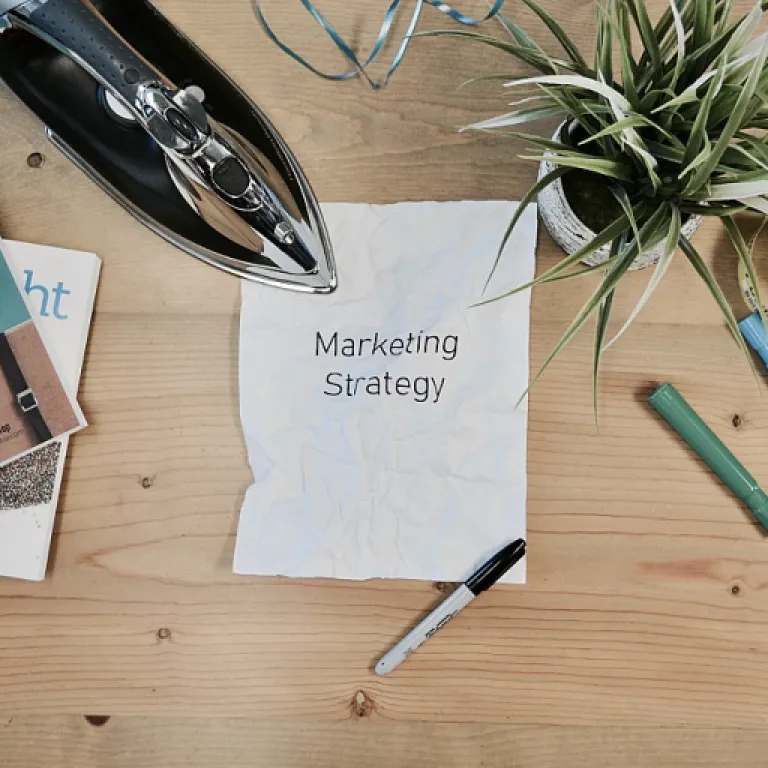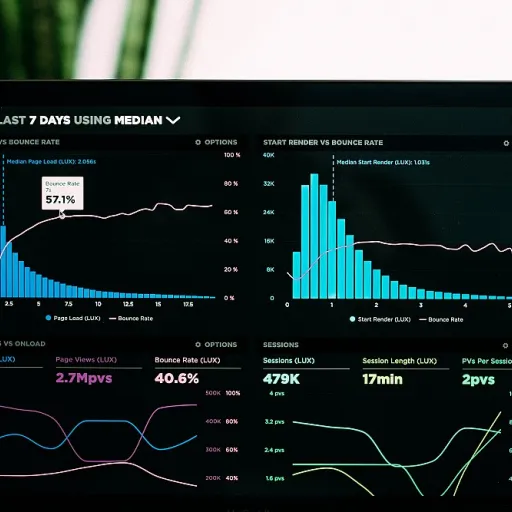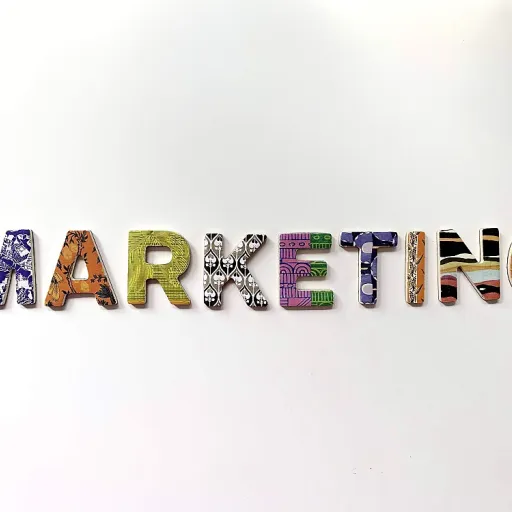
Understanding inbound marketing in the industrial sector
Why inbound marketing matters for industrial companies
In the industrial sector, traditional marketing and advertising methods often struggle to reach the right audience. Manufacturing companies face unique challenges: long buyer journeys, complex products and services, and a highly specific target audience. Inbound marketing offers a solution by focusing on attracting potential customers through high quality content, tailored to the needs and interests of industrial buyers. This approach helps companies build trust, generate leads, and nurture relationships throughout the decision-making process.
Key elements of inbound marketing for manufacturing
- Content marketing: Creating valuable blog posts, case studies, and whitepapers that address industry pain points and educate potential customers.
- SEO and search engine visibility: Optimizing website content to appear in search results when prospects look for manufacturing solutions.
- Lead generation: Using targeted content and calls-to-action to capture contact information and move prospects through the marketing sales funnel.
- Social media and email marketing: Sharing content across relevant media channels to engage with the audience and keep the company top of mind.
How inbound marketing differs from traditional approaches
Unlike outbound advertising, which pushes messages to a broad audience, inbound marketing attracts a specific target audience actively searching for solutions. This shift is especially important for industrial businesses, where buyers conduct extensive research before contacting suppliers. By providing helpful, relevant information, companies position themselves as trusted partners rather than just vendors.
For manufacturing marketing teams, adopting an inbound strategy means aligning digital marketing efforts with the way modern buyers search for products and services. This includes understanding the role of search engines, developing a content strategy based on best practices, and leveraging data to refine campaigns. To learn more about how digital campaigns can impact your reach, check out this analysis of Facebook ad reach and website conversion campaigns.
The role of artificial intelligence in modern SEO
AI’s Influence on Search Engine Algorithms
Artificial intelligence is now at the core of how search engines rank and display results. For manufacturing companies and the broader industrial sector, this means that traditional marketing strategies are no longer enough. Search engines use AI to analyze website content, user behavior, and even the intent behind each search. This shift impacts how inbound marketing and digital marketing campaigns are structured, especially when targeting specific audiences or promoting products and services.
Enhancing Content Relevance and Authority
AI-driven algorithms prioritize high quality, relevant content that addresses the needs of the target audience. For industrial businesses, this means optimizing content marketing efforts to answer technical questions, showcase case studies, and provide detailed information about manufacturing processes. AI evaluates signals such as user engagement, time on page, and the depth of information to determine which websites are most valuable for users. As a result, companies must focus on creating content that not only attracts leads but also guides them through the buyer journey.
Adapting to Continuous Search Changes
Search engines are constantly evolving, with features like continuous scrolling changing how users interact with search results. This impacts advertising, inbound strategies, and how companies approach lead generation. For more on this topic, see this analysis of continuous scrolling’s impact on ad strategies. Understanding these changes is essential for industrial businesses aiming to stay ahead in SEO and digital marketing.
- AI helps identify the most effective keywords for manufacturing marketing and inbound campaigns.
- It enables real-time adjustments to marketing strategy based on search trends and audience behavior.
- AI-powered tools can analyze competitors’ websites, helping companies refine their own SEO and content approaches.
By leveraging AI in SEO, industrial businesses can better connect with their target audience, improve lead generation, and ensure their marketing sales efforts are aligned with the latest best practices in digital marketing and inbound marketing.
AI-driven content creation for industrial audiences
AI-Powered Content Tailored for Industrial Audiences
In the industrial sector, creating high quality content that resonates with a specific target audience is a major challenge. Manufacturing companies often deal with complex products and services, making it essential to deliver information that is both accurate and accessible. Artificial intelligence is transforming content marketing by enabling businesses to generate blog posts, case studies, and technical articles that address the unique needs of industrial buyers.
- Understanding the audience: AI tools analyze search data, website behavior, and social media interactions to identify what topics matter most to potential customers. This insight helps companies develop a marketing strategy that aligns with the buyer journey and supports lead generation.
- Generating relevant content: AI-driven platforms can suggest topics, optimize headlines, and even draft initial versions of content. This speeds up the content creation process and ensures that each piece is optimized for search engines and tailored to the industrial sector.
- Personalization at scale: By leveraging data from inbound marketing campaigns, AI can help manufacturing companies deliver personalized content experiences. For example, email marketing campaigns can be customized based on a lead’s industry, company size, or previous interactions, increasing the likelihood of conversion.
- Enhancing content quality: AI tools review existing content for gaps and opportunities, ensuring that information is accurate, up-to-date, and aligned with best practices in digital marketing. This is especially important in manufacturing marketing, where technical accuracy builds trust with the audience.
For industrial businesses looking to validate new products or services, effective landing pages play a crucial role in attracting and converting leads. To see how AI-driven strategies can improve your landing page performance, explore examples that demonstrate best practices in inbound marketing for the manufacturing industry.
By integrating AI into content creation, industrial companies can move beyond traditional marketing and develop a digital marketing approach that speaks directly to their target audience, supports marketing sales, and drives measurable results.
Automating SEO tasks for efficiency and scale
Streamlining SEO Operations with Automation
In the industrial sector, marketing teams often face the challenge of managing large websites, extensive product catalogs, and a diverse target audience. Automating SEO tasks with artificial intelligence is transforming how manufacturing companies and B2B businesses approach digital marketing. By leveraging AI, companies can efficiently scale their inbound marketing strategy, reduce manual workload, and focus on high-value activities that drive lead generation and sales.
- Keyword Research and Clustering: AI tools analyze massive datasets to identify high-potential keywords relevant to the industry, products, and services. This helps companies target specific search terms that align with their audience’s intent and buyer journey.
- Content Optimization: AI-powered platforms automatically audit website content, suggesting improvements for SEO best practices. This includes optimizing meta tags, headings, and internal linking, ensuring content marketing efforts reach the right audience.
- Technical SEO Monitoring: Automated systems continuously scan websites for issues like broken links, slow loading times, or crawl errors. This proactive approach helps maintain high-quality user experiences and search engine rankings.
- Automated Reporting: AI-driven analytics tools generate real-time reports on SEO performance, making it easier for marketing and sales teams to measure the impact of their strategies and adjust campaigns quickly.
For manufacturing marketing teams, automation means less time spent on repetitive tasks and more resources dedicated to strategic planning, content creation, and engaging with customers through social media and email marketing. This shift supports a more agile and responsive marketing strategy, allowing companies to adapt to changes in the industry and stay ahead of competitors.
| SEO Task | Traditional Approach | AI-Driven Automation |
|---|---|---|
| Keyword Research | Manual analysis, time-consuming | Automated clustering, faster insights |
| Content Auditing | Periodic manual reviews | Continuous, real-time optimization |
| Technical SEO | Reactive fixes | Proactive monitoring and alerts |
| Reporting | Manual data compilation | Automated dashboards and insights |
Adopting AI for automating SEO tasks is no longer just a trend but a necessity for industrial companies aiming to maximize their digital marketing impact. This approach not only improves efficiency but also ensures that marketing strategies remain aligned with evolving search engine algorithms and customer expectations.
Personalization and user intent in industrial SEO
Enhancing User Experience with AI-Powered Personalization
Industrial companies face unique challenges when it comes to connecting with their target audience. Unlike traditional marketing, inbound marketing strategies in the manufacturing sector require a deep understanding of customer needs, technical requirements, and the buyer journey. Artificial intelligence is transforming this landscape by enabling a level of personalization that was previously impossible.
- Understanding User Intent: AI algorithms analyze search data, website behavior, and content engagement to identify what industrial customers are really looking for. This helps companies deliver content and products services that match specific needs, improving both lead generation and customer satisfaction.
- Dynamic Content Recommendations: AI-driven systems can suggest high quality blog posts, case studies, and product pages based on a visitor’s previous interactions. This keeps potential leads engaged and moves them further along the marketing sales funnel.
- Segmentation for Targeted Messaging: By processing large volumes of data from social media, email marketing, and website analytics, AI can segment audiences more accurately. This allows manufacturing companies to tailor their marketing strategy for each segment, ensuring that advertising and content marketing efforts resonate with the right people.
Optimizing for Industrial Search Intent
Search engines are getting better at understanding the context behind queries, especially in the industrial sector where terminology can be highly specific. AI tools help companies optimize their website and content for these nuanced searches, ensuring that their digital marketing efforts reach the right audience.
- Keyword and Topic Clustering: AI identifies clusters of related keywords and topics relevant to manufacturing, making it easier to create comprehensive content that addresses multiple aspects of a customer’s search intent.
- Personalized Landing Pages: AI can dynamically generate landing pages tailored to the visitor’s industry, company size, or previous interactions, increasing the likelihood of conversion.
Best Practices for AI-Driven Personalization in Manufacturing Marketing
| Best Practice | Benefit |
|---|---|
| Leverage AI for audience segmentation | Improves targeting and relevance of inbound marketing campaigns |
| Use AI-powered analytics to track user behavior | Enables continuous optimization of content and strategy |
| Integrate AI with email and social media marketing | Delivers personalized messages across multiple channels |
| Regularly update content based on AI insights | Keeps website and blog posts aligned with evolving search engine algorithms and customer needs |
By embracing AI-driven personalization, manufacturing companies can create a more engaging and effective inbound marketing experience. This not only helps attract and convert leads but also builds long-term relationships with customers in a highly competitive industry.
Measuring success: AI-powered analytics for inbound marketing
Turning Data into Actionable Insights
In the industrial sector, measuring the impact of inbound marketing and SEO is essential for refining strategy and proving ROI. Artificial intelligence has transformed analytics, making it possible to go beyond basic metrics and uncover deeper insights about your audience, content, and lead generation efforts.
- Comprehensive Tracking: AI-powered analytics platforms can monitor every touchpoint in the buyer journey, from the first website visit to email marketing engagement and social media interactions. This helps manufacturing companies understand which channels and content types drive the most qualified leads.
- Predictive Analytics: AI tools analyze historical data to forecast future trends in search engine performance, inbound traffic, and customer behavior. This enables companies to adjust their digital marketing strategy proactively, rather than reacting after the fact.
- Content Performance: By evaluating which blog posts, case studies, and media assets generate high quality leads, AI helps businesses focus on what resonates with their target audience. This is especially valuable in manufacturing marketing, where technical content must address specific industry needs.
- Personalized Reporting: AI customizes dashboards for different teams, whether it’s sales, marketing, or product managers. This ensures everyone in the company can access relevant data to inform decisions about products, services, and advertising campaigns.
Key Metrics for Industrial Inbound Marketing
To measure the success of your inbound and SEO efforts, focus on metrics that align with business goals:
| Metric | Why It Matters |
|---|---|
| Organic Search Traffic | Shows how well your website attracts visitors through search engines without paid advertising. |
| Lead Generation Rate | Measures how effectively your content and inbound marketing convert visitors into potential customers. |
| Engagement Metrics | Includes time on site, pages per session, and bounce rate to assess content quality and relevance for your target audience. |
| Conversion Rate | Tracks how many leads become customers, helping companies optimize their marketing sales funnel. |
| Channel Attribution | Identifies which digital marketing channels (email, social media, blog posts) are most effective for your industry. |
AI-driven analytics empower manufacturing companies to continuously improve their inbound marketing strategy. By focusing on the right data, businesses can deliver high quality content, reach their target audience, and achieve measurable growth in a competitive industrial landscape.













